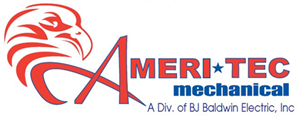
Ever done a double take when you checked your last energy bill? Although high energy bills can be the result of extreme weather events, persistently high bills can also indicate an inefficient HVAC system or your home is using too much energy because of other means, like drafty windows or poor insulation.
An easy way to identify whether your home is using too much energy is by calling a home service specialist to carry out a home energy audit, also referred to as a home energy assessment. Keep reading to learn more about home energy audits, including what they are and their benefits.
What Is a Home Energy Audit?
An energy audit is a thorough inspection of how much energy your home consumes and whether – and where – your home might be losing or wasting energy. An inspector will go through previous energy bills during an energy audit to determine where energy is being consumed and how much.
The overall goal of an energy audit is to help homeowners save money on their energy bills by suggesting energy-efficient updates, which can include exchanging your current HVAC system, putting in new insulation, plugging up leaks, or replacing old windows.
Over the course of the energy assessment, the auditor carries out an inspection of the outside and inside of your home. The auditor performs a blower door test on doorways, windows and fireplaces to determine if there are air leaks in your home. They’ll also evaluate your home’s HVAC system, including the ductwork, the water heater, and the insulation in your attic. Exhaustive assessments might also include inspecting your current lighting system.
Benefits of a Home Energy Audit
It can be hard for the ordinary homeowner to know for sure how efficient their home is in comparison to other similar homes in their neighborhood. However, local energy companies often supply information about where your home stands when compared with similar homes and whether it’s more efficient, about average, or inefficient in contrast with your neighbors’ homes. This could be a great starting point to figure out if you need an energy audit completed.
Some of the benefits of a home energy audit include:
Understanding How Efficient Your Home Is
It’s worthwhile to understand how efficient your home is and where you’re using up the most energy. For example, if your ducts are leaking air, it can lead to a large increase in your energy bills and excessive wear and tear on your HVAC system as it has to work longer to fully heat or cool your home.
Making Energy-Efficient Updates
An energy audit can expose where you need to make energy-efficient changes to cut back on energy and lower utility bills. This may include replacing old weatherstripping or buying a new energy-efficient furnace.
Enhancing Health and Safety
Permitting air to leak into your home through doors and windows, or due to a lack of insulation can cause extra moisture to build up, which could negatively affect your home’s humidity levels or encourage mold. This can cause health problems, particularly for people dealing with asthma or allergies.
Raising Your Home’s Retail Value
Energy-efficient homes are preferred by homebuyers. You can sell your home much faster or for more money by demonstrating to possible buyers that it’s energy efficient.
How to Complete an Energy Audit of Your Home
Although performing an energy audit independently may not be as detailed as calling a professional, it’ll offer you a general sense of how energy efficient your home is. If you don’t discover any issues during the DIY test, then you likely don’t need to call in a professional. Follow this step-by-step checklist:
- Examine your HVAC system. Damaged ducts can lose as much as 20% of conditioned air, contributing to steeper energy bills and excess wear and tear on HVAC equipment. If you find leaks, use duct tape to seal them. If your HVAC equipment is old and inefficient, upgrading to a new system can save you a significant amount on your energy bills. In some cases, it might be better to hire a reputable HVAC company to inspect your system.
- Check for air leaks. Air leaks on average can increase the energy bills by 10 to 20%. Inside, look for air leaks in areas where there could be a draft, such as along the edge of flooring and near baseboards and electrical outlets. Outside, you can inspect for air leaks around the home’s foundation, siding and mortar. Plug, caulk or seal any air leaks to save money.
- Inspect insulation. If your home is older, it could mean your insulation is too. If you can see the joists, you likely need more insulation.
- Check ventilation. Ensure that all of your kitchen and bathroom exhaust fans are spinning properly, and inspect for evidence of rot or moisture.
Contact Ameri-Tec for a Professional Energy Audit
If you want professional help figuring out how energy efficient your heating and cooling equipment is, call the HVAC professionals at Ameri-Tec today. We’ve proudly supported the residents of Narvon with quality home services for years. Contact us today to schedule an appointment.
